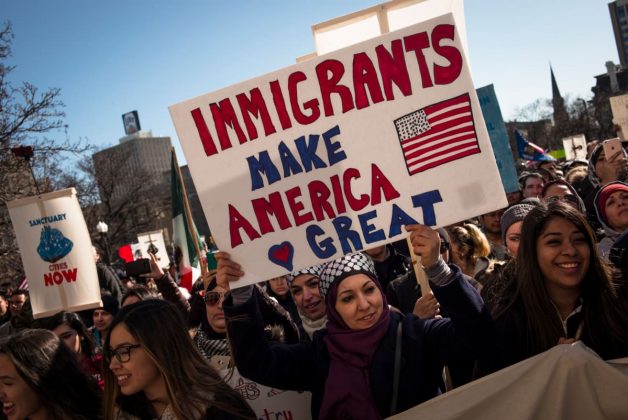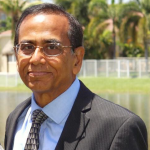
 While immigration isn’t necessary for U.S. growth so long as the American people are free to exchange with the rest of the world, the rest of the world’s inhabitants would likely be more productive if they worked in the U.S.
While immigration isn’t necessary for U.S. growth so long as the American people are free to exchange with the rest of the world, the rest of the world’s inhabitants would likely be more productive if they worked in the U.S.
Prosperity made great by work divided globally would be quite a bit greater if more of the work was divided up by those people in the United States.
By Nazarul Islam
Aided by our leanings of ‘left’ or ‘right’, many of us like to view the rise of China, from its abject poverty to prosperity—as some kind of a threat to other countries. If you like, you may choose the ‘others’. People like me, have slowly reconciled with the idea of what is going on. So we look at the events… backwards to forwards. The truth is: When one country’s people are increasingly free economically, their production lifts the rest of the world.
Work divided is once again, work divided. For a long, long time, China was a much bigger and more perilous, a millstone around the world’s ’collective neck’ when its people had lacked economic freedom precisely because they couldn’t work alongside the rest of the world. Let’s travel back in time 30 years, wherever we may have lived in the subcontinent of India. And, recall the fact that: We were all poorer, when China was desperately poor precisely because four billion “hands” in China were to varying degrees ‘handcuffed’, political and ideological restrictions!
As PRC (China) started to break its shackles in the late eighties, I had visited the country at least on four occasions. These visits were not restricted to the Great Wall, nor the miraculous factories, roads, highways, schools and skyscrapers, emerging all around the capital; And certainly not the wooden bridges on suburban Beijing, where emboldened Chinese girls wooed good looking American tourists. This was the kissing bridge, which had in 1988 heralded the heat of the US-China friendship. This was after the shocking event of Tiananmen Square, in Beijing.
Today all this speaks to one obvious problem with the argument made, so far. It has to do with all countries not being created equal. The U.S. is happily unequal because Americans have always been free. That’s why it’s long been a lure for the world’s strivers who knew they would erase the poverty that had previously defined their lives if they could just get to the United States.
A celebrity American industrialist Andrew Carnegie, had arguably articulated it best, that “If I had been at Dumfermline working at the loom it’s very likely I would have been a poor weaver all my days, but here, I can surely do something better than that.” Carnegie’s letter to his Scottish relatives about his adopted country vivifies the basic truth that ‘human productivity soars the minute humans step into the United States’.
Long a magnet for people seeking personal and economic freedom, the people who made it to the U.S. have proved a magnet for the capital that, when matched with people, authors even greater economic growth. It’s something to think about. The capacity to prosper soars upon arrival in the world’s greatest country.
So, while immigration isn’t necessary for U.S. growth so long as the American people are free to exchange with the rest of the world, the rest of the world’s inhabitants would likely be more productive if they worked in the U.S. In short, prosperity made great by work divided globally would be quite a bit greater if more of the work was divided up by those people in the United States.
That’s really something to think about.
_____________________
About the Author
